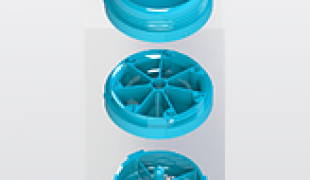- 954
- 83
- 1
- 1
- 0
- Help Ukraine
About the solution
Australian doctor Professor Richard Scolyer was already renowned for his pioneering research in pathology, particularly in the realm of skin cancer, when he received a life-altering diagnosis of glioblastoma, an aggressive form of brain cancer. Determined to find a treatment for his own cancer, Professor Scolyer embarked on a journey that would not only challenge the boundaries of medical science but also offer hope to countless others facing similar battles.
After being diagnosed with glioblastoma, Professor Richard Scolyer underwent surgery to remove the tumor, which is a standard procedure for this type of cancer. However, what sets his recovery path apart is the innovative treatment he received afterwards. Professor Scolyer underwent an experimental treatment based on his own research on melanoma immunotherapy. This treatment involved a combination of drugs administered before surgery to enhance the body's immune response to cancer cells. Specifically, he received pre-surgery combination immunotherapy, which was supplemented by a personalized vaccine tailored to his tumor's unique characteristics.
The innovative element in his recovery path lies in the application of this novel treatment approach, which was originally developed for melanoma but adapted for glioblastoma. By combining surgery with this experimental immunotherapy, Professor Scolyer aimed to not only remove the tumor but also boost his body's ability to fight against any remaining cancer cells and reduce the risk of tumor recurrence.
After undergoing surgery, he had a tough couple of months at the start of the year dealing with treatment-related issues such as epileptic seizures, liver issues, and pneumonia. Despite these challenges, he expressed feeling healthier after the treatment and resumed daily exercise.
Remarkably, a year after his diagnosis, Professor Scolyer remains cancer-free, as confirmed by his latest MRI scans. His journey serves as an inspiration to the power of innovation in the face of adversity. As a respected medical authority and co-director of the Melanoma Institute Australia, Professor Scolyer's efforts offer hope to the countless individuals worldwide grappling with glioblastoma. "I feel proud of the team that I work with. I feel proud that they're willing to take the risk in going down this path.”, told Scolyer to the BBC. Professor Scolyer didn't face his cancer journey alone. He was supported by a dedicated medical team, including his colleague Professor Georgina Long.
While acknowledging the challenges that lie ahead, Professor Scolyer and Professor Long are hopeful their new treatment might one day help glioblastoma patients, turning what was seen as an incurable disease into a chance for recovery.
Adapted from:
https://www.bbc.com/news/world-australia-69006713
https://news.sky.com/story/doctor-still-cancer-free-almost-a-year-after-...
https://www.youtube.com/watch?v=JsVuXOvHzak
这些解决方案不应包括使用药物,化学品或生物制品(包括食品);创伤性设备;冒犯性的,商业或内在危险的内容。该解决方案未经医学验证。请谨慎进行!如果您有任何疑问,请咨询健康专家。
DISCLAIMER: This story was written by someone who is not the author of the solution, therefore please be advised that, although it was written with the utmost respect for the innovation and the innovator, there can be some incorrect statements. If you find any errors please contact the patient Innovation team via info@patient-innovation.com
-
-
507
-
0
-
9003

Ava the Elephant – Medicine dispenser for children
SWALLOWING: Swalling food and liquids
CAREGIVING
Down Syndrome (Trisomy 21)
Neuromuscular Disorders
Treatment/Surgical device
Pharma
Strategy/Tip
Vision problems
Difficulty coordinating movements
Muscle weakness
Trouble with fine motor skills (e.g., writing, buttoning clothes)
Cognitive impairment
Memory loss
Confusion
Anxiety
Hearing loss or ringing in the ears (tinnitus)
Mood swings
Manage Medication
To improve Treatment/Therapy
Caregiving Support
General and Family Medicine
Medical Genetics
Neurology
Pediatrics
United States
-
-
-
537
-
2
-
9873

Mother creates 3D printed pill coater
CAREGIVING
SWALLOWING: Swalling food and liquids
Chron's Disease
Assistive Daily Life Device (to help ADL)
Pharma
Strategy/Tip
Abdominal pain
Nauseas
Weight loss
Indigestion (dyspepsia)
Change in bowel habits
Diarrhea
Loss of appetite
Blood in the stool (hematochezia)
Manage Medication
To improve Treatment/Therapy
Caregiving Support
Gastroenterology
General and Family Medicine
Pediatrics
Canada
-
-
-
413
-
0
-
7955

Cancer survivor creates new app to help patients overcome chemo brain
-
 zh
zh